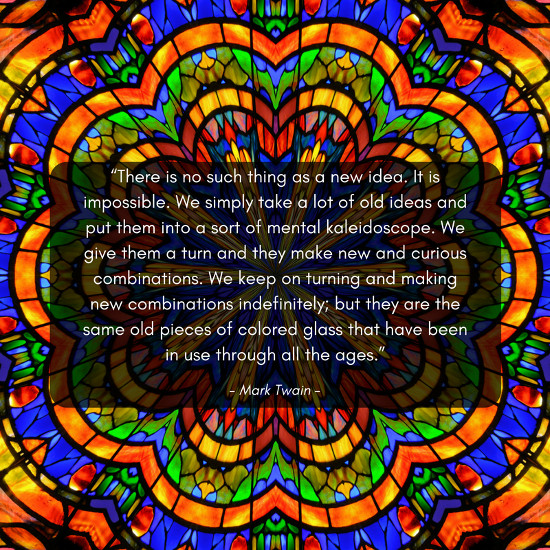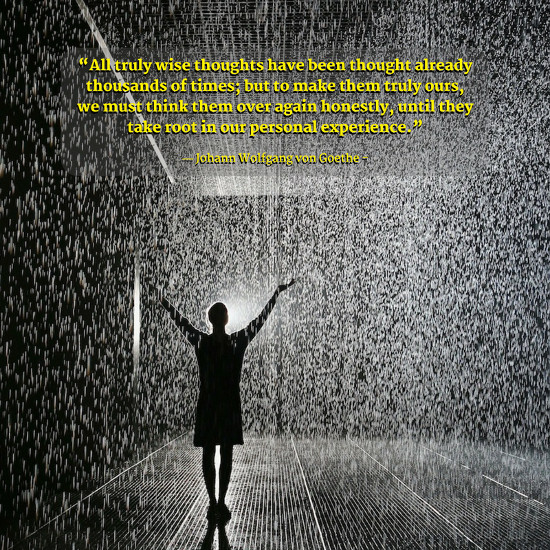Earlier this week, I wrote an article revealing three crazy tips on how to develop original ideas.
Amidst the feedback, a few readers were quick to advise me that there was no such thing as an original idea. That every idea you think is original has already been thought of by not just one other people, but many throughout the course of human history.
They quoted Twain – “There is no such thing as a new idea” – Goethe – “All truly wise thoughts have been thought already thousands of times” – Fry – “An original idea. That can’t be too hard. The library must be full of them” – as indisputable proof of their claims.
Here’s the thing: they didn’t need to prove anything to me. I completely agree that there is no such thing as an original idea. That doesn’t mean, however, that we can’t steal these ideas and make them our own.
The pursuit of creative excellence, whether in the arts or in business, is founded on such theft. On the ability to mimic the work of predecessors as closely as you would follow the construction manual for an IKEA bookshelf.
Just like an IKEA bookshelf, the end result of this emulation is going to have flaws. You will see portrayed the elements of the work you like, the elements that attracted you to the creator originally, but if you’re paying attention, you’ll start to notice imperfections and limitations.
It is here that the process of making something original starts. It is here that what marks you as an individual, as original, will find its way into your work.
That’s the bit the critics always leave out when quoting Twain or Goethe on the originality of ideas. Here are their remarks on original ideas, in full:
Creative excellence is about finding the balance between what has worked in the past, and how you alone can shape it anew to define the future. This is where innovation comes from. This is where originality comes from. This is where greatness comes from.
A fantastic example of a master creative heist is Consumers, an eBook by Harry Dry. Dry reflects on how we develop ideas through experience by explicitly taking content from other creators and pasting it into his own work. The book is interesting not just in the concept it puts forward regarding the importance of learning from those who came before, but in its potent portrayal of the concept at work.
Another example is perhaps the seminal work on creative theft, Austin Kleon’s Steal Like an Artist. Kleon walks readers through the process, from the difference between ‘good’ and ‘bad’ stealing, to how to keep your creativity on track.
To say there are no original ideas is to strike a debate that will continue for as long as society does. To equate the notion that there no original ideas with the claim that, as a result, we can’t be original is to dismiss the power of the creative individual. As long as we continue to produce great creative work, new generations will rise to steal it, and make it their own. And so they should.


